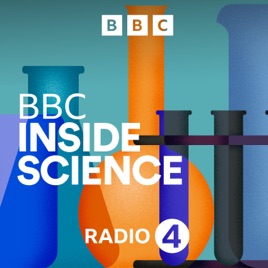
Advertise on podcast: BBC Inside Science
Rating
4.4 from
Country
This podcast has
304 episodes
Language
Publisher
Explicit
No
Date created
2013/07/05
Average duration
29 min.
Release period
7 days
Description
A weekly programme that illuminates the mysteries and challenges the controversies behind the science that's changing our world.
Social media
Check BBC Inside Science social media presence
Podcast episodes
Check latest episodes from BBC Inside Science podcast
Hydrogen and the race to net zero
2024/02/22
Hydrogen has long been touted as a potential wonder gas that could play a significant role in our race to net zero. Now, planning permission has been granted for the UK’s largest production hub of its kind, and one of the most advanced in the world. Located in Cheshire, it bills itself as a vital piece of Northwest England’s mission to help manufacturers in the region decarbonise their processes and support UK jobs. We speak to chemical engineer and the plant’s site manager, Richard Holden, and we also catch up with Mark Miodownik, Professor of Materials and Society at University College London, about hydrogen and our future energy economy.
Almost 25 years ago, Dr Marc Lammers stumbled across a mystery. The humpback whale singing he was recording via an underwater microphone near the shore was quieter during the day than at night. But he wasn’t able to answer why. Many years later, a PhD student, Anke Kuegler, joined his research team and took on the task of uncovering what was really going on. Using multiple ways of listening to and tracking the whales, she found out that the singing humpbacks were moving off-shore during the day, and closer to shore at night. Part of the mystery was solved, but it raised an even bigger question: what is driving this behaviour?
Plus, a recent study has shown that terrestrial hermit crabs around the world are using non-organic materials, like plastic bottle caps, as their homes. Professor Marta Szulkin and her team at the University of Warsaw looked through social media photographs and videos (known as iEcology, or Internet Ecology) to find evidence for this new behaviour. Marta has theories about why the crabs are doing this, but it will take many years of research to uncover the long-term effects on hermit crab populations and their evolutionary trajectory. And, resident materials expert, Mark Miodownik, chats to Viv about what we can, and cannot, solve about the global plastic emergency.
Presenter: Victoria Gill
Producers: Florian Bohr, Louise Orchard
Editor: Martin Smith
Production Co-ordinator: Jana Bennett-Holesworth
BBC Inside Science is produced in collaboration with the Open University.
more
A New Volcanic Era?
2024/02/15
As lava consumes homes on the Reykjavik Peninsula in Iceland, evacuated communities have been witnessing eruptions shifting and intensifying. We take a look at the latest science that’s helping teams on the ground accurately predict where the danger is coming from, helping people to stay safe. Our go-to volcanologist, Dr Evgenia Ilyinskaya, and her colleague, Professor Andrew Hooper, from the University of Leeds tell presenter Victoria about these new technological advancements, and ask the crucial question: are we entering a new millennium of volcanic activity in Iceland?
When looking at clear ocean water, you might assume that, aside from fish and some algae, there isn’t much living in it. But Prof Carlos Duarte knows it is full of life. In fact, his new study shows just how many different microbes – bacteria, viruses & fungi – live in all parts of our ocean. He and his team at King Abdullah University of Science and Technology in Saudi Arabia have created the largest ocean genome catalogue to date. Prof Mark Blaxter from the Wellcome Sanger Institute joins us to discuss this new study, the benefits of hypothesis-free science, and why he believes cataloguing the code of life of all the species on earth is an important endeavour.
And, lastly, an old dinosaur fossil in New Mexico has been re-examined. What was believed to be of the infamous Tyrannosaurus rex may have been a different species all along. But not all palaeontologists agree. How do scientists even tell a dinosaur species from a fossil? Prof Stephen Brusatte tells Vic that it’s all about comparing bones.
Presenter: Victoria Gill
Producers: Florian Bohr, Louise Orchard, Hannah Robbins
Editor: Martin Smith
Production Co-ordinator: Jana Bennett-Holesworth
BBC Inside Science is produced in collaboration with the Open University.
more
Understanding Flood Forecasting
2024/02/08
When Lois Pryce arrived at her boat in Berkshire, the area was already completely flooded. The only way to get to it was via a small pontoon. She is one of many across the UK that have been affected by the current floods, and is very familiar with the flood warning system accessible to the public. But how exactly does this system work? What information is taken into account? Marnie Chesterton speaks to Dr Linda Speight about flood forecasting, and the delicate balance of when to send out flood alerts and warnings.
Plus, a supersized spacecraft is launching this October. Europa Clipper will assess whether the most intriguing of Jupiter’s 95 moons is habitable, meaning, could it support life? The evidence is tantalising. Jenny Kempmeir, Science Systems Engineer at NASA’s Jet Propulsion Laboratory, tells us why Europa might be the second body in our solar system on which life could exist.
And, if you’ve been procrastinating over the housework – or should we say, mousework? - take a leaf out of a little rodent’s book. Apparently, mice do like to keep things clean, but a video that went viral this week seemingly takes this idea to another level entirely! You may well have seen the footage of a Welsh mouse gathering up objects in a shed and placing them neatly inside a box, night after night. It’s certainly very cute - Tidy Mouse carrying out its mousekeeping..but what’s the scientific explanation behind this curious behaviour?
Finally, how do exercise and video games affect cognitive performance? Professor Adrian Owen is launching a new experiment to find out and he needs your help.
Presenter: Marnie Chesterton
Producers: Louise Orchard, Florian Bohr, Hannah Robbins
Editor: Martin Smith
Production Co-ordinator: Jana Bennett-Holesworth
BBC Inside Science is produced in collaboration with the Open University.
more
Space Exploration
2024/02/01
2024 is an exciting year for lunar exploration. For Inside Science this week Marnie Chesterton investigates the planned missions to the Moon over the next twelve months.
It’s been more than fifty years since the last manned mission to the Moon was completed. But that’s about to change with NASA’s upcoming Artemis II mission. This will not only be the first manned lunar flyby of the Moon since 1972, but also the first mission to have a woman and person of colour on board. Reid Wiseman, Commander of the Artemis II manned mission explains more about the mission and even lets us into a few secrets about what culinary delights await astronauts in space.
But it’s not just NASA going to the Moon in 2024. China’s Chang’e 6 mission is lifting off in May, aiming to collect samples of rock from the far side of the moon. Quentin Parker, Director of the Laboratory for Space Research at the University of Hong Kong has a unique insight into China’s mission and has been following progress.
Presenter: Marnie Chesterton
Producers: Hannah Fisher
Editor: Richard Collings
Production Co-ordinator: Jana Bennett-Holesworth
BBC Inside Science is produced in collaboration with the Open University.
more
12 days of Christmas - science version
2024/01/25
Marnie Chesterton & Victoria Gill embark on a science-themed version of the classic Christmas song ‘The 12 Days of Christmas’ in this festive edition of BBC Inside Science.
Twelve of the biggest moments of the year in science include discussion about a very special treefrog discovered in the Ecuadorian Andes. We also hear about two new promising drugs for Alzheimer’s disease.
An astronomer and visualisation scientist tells us about three new sonifications of space data.
There’s more on the discovery of a 476,000 year-old wooden structure found earlier this year in Zambia and how it has changed archaeologists' understanding of ancient human life.
The year has also seen 5,000 new species discovered in a deep ocean abyssal plain. Saturn has 62 new moons and is now the planet with the most moons in our solar system.
A report was published deeming 75% of UK rivers as posing a risk to human health. We gathered together experts from Natural Resources Wales, Cardiff University, Bangor University and the Wye and Usk Foundation who discussed why the help from citizen science is essential for their work.
And a new record has been set which is really worrying scientists - the highest average global ocean surface temperature, which reached 20.98 degrees centigrade.
Other notable moments from the year include: a Japanese twelve-legged robot, eighteen video-calling parrots, proposals for the 10km long Einstein telescope and the theory behind why one player in every football team views the world slightly differently.
To help us along the journey the BBC’s Radio Drama Company put all the science together into a brand-new rendition of the well-known 12 days of Christmas song.
Presenter: Marnie Chesterton & Victoria Gill
Producer: Hannah Fisher
Assistant Producer: Emily Bird
Editor: Richard Collings
Production Co-ordinator: Jana Bennett-Holesworth
BBC Inside Science is produced in collaboration with the Open University.
more
The Science of the South Pole
2024/01/18
We’re on board the RSS Sir David Attenborough for the vessel’s first big science season in the Antarctic, since it launched in 2020. It’s crewed by scientists involved in Project Biopole, a 5-year mission attempting to better understand carbon cycle at the poles. Nadine Johnston, a microbiologist with the British Antarctic Survey, joins Inside Science to talk about her work on copepods; zooplankton that build up huge fat reserves over the spring and summer months, then hibernate at 3000m during winter, taking carbon with them which is then locked-up in the deep ocean for up to 600yrs! Her research is a world first in the Southern Ocean and could help improve global carbon modelling of the earth system.
Staying in the South Pole, neuroscientist John-Antoine Libourel, talks about his latest research into the surprising sleeping habits of chinstrap penguins.
And after weeks of intense earthquake activity, the volcano on the Reykjanes peninsula of south-west Iceland has erupted. Dr Evgenia Ilyinskaya, our go-to volcanologist, provides an update. Plus, a nod to the festive season, as composer and AI artist, LJ Rich, explains why Christmas music makes us feel all fuzzy.
Presenter: Victoria Gill
Producers: Hannah Robins, Harrison Lewis & Louise Orchard
Editor: Richard Collings
Production Co-ordinator: Jana Bennett-Holesworth
BBC Inside Science is produced in collaboration with the Open University.
more
Biggest COP in history
2024/01/11
COP 28, the largest climate summit in history, has drawn to a close. Marnie Chesterton examines some of the main stories to emerge from this lengthy conference.
The way we look after our oceans, measures needed to ensure food security and an agreement to transition away from fossil fuel dependence were some of the big themes of the summit.
The BBC’s climate reporter Georgina Rannard takes us through the final agreement.
We hear from Glada Lahn, senior research fellow at international affairs think-tank Chatham House, who explains how we might one day wean ourselves off so-called ‘brown energy’.
Farming is also a source of greenhouse gases. Growing, processing and packaging food account for a third of all greenhouse gas emissions. How we feed the 8.1 billion of us on the planet continues to be a contentious issue. Casper Chater from Royal Botanic Gardens Kew explains what we can do to adapt our existing crops to cope with more frequent flood and drought events.
Oceans are warming, losing oxygen and acidifying. Sea levels are rising. We speak to Ko Barrett, a senior climate advisor at the US's National Oceanic and Atmospheric Administration, about the role oceans have played so far in helping us mitigate the worse effects of climate change. And we meet Mervina Paueli, a 25-year-old Tuvaluan negotiator, whose small archipelago in the South Pacific is on the frontline.
Presenter: Marnie Chesterton
Producers: Louise Orchard, Hannah Robins and Harrison Lewis
Editor: Richard Collings
Production Co-ordinator: Jana Bennett-Holesworth
BBC Inside Science is produced in collaboration with the Open University.
more
Vagrant Birds
2024/01/04
Vagrant birds are those that appear in locations where they are not usually found. They might have been blown off course by a storm or have been affected by changing weather patterns due to climate change. Although a treat for birders, these visitors can also have a big impact on their new environments as Victoria Gill finds out when she heads to Burton Mere Wetlands on the Dee Estuary with Dr Alexander Lees, reader in biodiversity at Manchester Metropolitan University.
As former Prime Minister Boris Johnson gives his testimony, we hear the latest from the UK Covid-19 Public Inquiry with BBC Health Reporter Jim Reed.
A new study reveals that, contrary to a commonly-held view, the brain does not have the ability to rewire itself to compensate for the loss of, for example sight, an amputation or stroke. This is despite what most scientists believe and teach. Moreover, the assumption that it has this ability has led to all manner of erroneous treatments for amputees, stroke victims and other conditions, the study suggests.
We’re joined by the study’s authors, Professor John Krakauer from Johns Hopkins University and Professor Tamar Making of the University of Cambridge. We’ll also hear from one of Tamar’s key case studies, Kirsty Mason, an amputee from the age of 18 who advanced the scientists’ experiments exponentially.
Presenter: Victoria Gill
Producers: Hannah Robins and Louise Orchard
Editor: Richard Collings
Production Co-ordinator: Jana Bennett-Holesworth
BBC Inside Science is produced in collaboration with the Open University.
more
Finding Tunnels
2023/12/28
Tunnels have been the focus of much attention this week as the war in Gaza continues and 41 workers were rescued in India, after 17 days trapped underground. Forensic geoscientists Jamie Pringle and Ruth Morgan explain the science behind identifying what’s beneath the surface, from above ground, and how you might work out what a tunnel is being used for.
This winter, the Northern Lights are going to be the most spectacular they’ve been in twenty years. With the aurora borealis already appearing as far south as Stonehenge, Katie Herlingshaw, a space physicsist from the University Centre in Svalbard, explains what’s happening.
The Conference of the Parties, or COP28, begins in Dubai. BBC’s Georgina Rannard gives us the rundown of which countries are the best and worst for sticking to climate goals and assesses the UK’s own standing after Rishi Sunak rowed back on key climate commitments earlier this year.
The UK Covid-19 Inquiry hears from some of the most important ministers this week as key government ministers give evidence. BBC Health Reporter Jim Reed gives us the update.
Presenter: Marnie Chesterton
Producers: Hannah Robins, Louise Orchard and Hannah Fisher
Editor: Richard Collings
Production Co-ordinator: Jana Bennett-Holesworth
BBC Inside Science is produced in collaboration with the Open University.
more
UK Covid-19 Inquiry
2023/12/21
Key scientific witnesses including former Chief Scientific Adviser Patrick Vallance and Chief Medical Officer for England Chris Whitty are called to the UK Covid-19 Inquiry. The BBC’s Jim Reed brings us his three key moments from the evidence heard over the past few days that have been dubbed “science week”.
NASA has managed to let loose a tool kit in the Earth’s orbit -- and you can even see it in the night sky with binoculars. Lucinda King explains how this is possible and if space junk is getting out of control.
The United Nations has warned we’re heading towards 3 degrees warming and another Conference of the Parties, known as COP, is about to take place. The BBC’s Georgina Rannard reminds us there is still hope for our planet to curb global warming.
The winner of the 2023 Royal Society Trivedi Science Book Prize was announced on Wednesday night. It’s Ed Yong for his book ‘An Immense World: How Animal Senses Reveal the Hidden Realms Around Us’. Marnie Chesterton was at the ceremony and nabbed Ed as well as Chair of the Judges Alain Goriely to find out what made this book the winner.
Presenter: Marnie Chesterton
Producers: Harrison Lewis, Hannah Robins and Louise Orchard
Editor: Richard Collings
Production Co-ordinator: Jana Bennett-Holesworth
BBC Inside Science is produced in collaboration with the Open University.
more
Iceland Volcano
2023/12/14
An underground river of magma and thousands of tremors have been observed across the Reykjanes peninsula in Iceland. We speak to the scientists monitoring the Fagradalsfjall volcano who explain how this might be ushering in a new era of huge volcanic activity in the country.
Sir Chris Whitty, Chief Medical Officer for England and Sir Patrick Vallance, former Chief Scientific Adviser to the UK government are due to appear at the Covid-19 Inquiry next week. It’s the next stage of the public inquiry that began proceedings in July last year. Now it’s focussing on the key questions surrounding how science and the scientific community informed government strategy before, during and after the pandemic. BBC Health Reporter Jim Reed has been attending the inquiry and explains what we know from the evidence that’s been given so far – and what to expect next week.
David Quammen discusses his book ‘Breathless: The Scientific Race to Defeat a Deadly Virus’. It's a thriller-style narrative revealing how scientists responded to the coronavirus pandemic. It’s our final shortlisted book for the Royal Society Science Book Prize. The winner will be announced next week.
Presenter: Victoria Gill
Producers: Hannah Robins, Harrison Lewis, Alice Lipscombe-Southwell
Editor: Richard Collings
Production Co-ordinator: Jana Bennett-Holesworth
BBC Inside Science is produced in collaboration with the Open University.
more
Loss and damages for vulnerable countries
2023/12/07
Professor Saleemul Huq, director of the International Centre for Climate Change and Development in Bangladesh, has died. He was instrumental in pushing for a loss and damages fund for vulnerable countries affected by climate change. Last year’s COP27 climate conference made a pledge to set up this fund. But, as yet, there is not one in place. Marnie Chesterton speaks to BBC climate reporter Esme Stallard about Professor Huq’s legacy, and where the money will come from for a loss and damages fund.
We also hear about an unusual snail that’s looking for love, with the help of matchmaking academic Dr Angus Davison. He’s hoping to find a suitor for the mollusc.
Marnie talks to Lev Parikian, author of Taking Flight: The Evolutionary Story of Life on the Wing, which has been shortlisted for this year’s Royal Society Trivedi Science Book Prize.
Geneticist, Professor Giles Yeo, who recently cycled from Land’s End to John O’Groats with two glucose monitors attached to his arms, gives us an update on his research. He wanted to find out how diet and exercise affected his body’s sugar levels.
Presenter: Marnie Chesterton
Producers: Hannah Robins, Harrison Lewis and Alice Lipscombe-Southwell
Editor: Richard Collings
Production Co-ordinator: Jana Bennett-Holesworth
BBC Inside Science is produced in collaboration with the Open University.
more
Podcast reviews
Read BBC Inside Science podcast reviews
mkcheshire
2021/10/31
Great show
Great show.
Mantis79
2023/07/13
GLOBAL WARMING CAUSES EVERYTHING
Gaya Vince interviewing scientists just about anything always suggests that ‘the cause’ is global warming, even though the interviewee is not jumping ...
more
TiffanyDesiree
2020/11/10
Favorite science podcast
This is a must-listen podcast. I enjoy all the different hosts and contributors, but Marnie is excellent.
Grapeape Jim
2021/03/04
Propaganda
These guys are great at it. I have to give them that. I thought listening to the news from another English-speaking country would provide keen insight...
more
brainzmatter
2021/02/20
Yes, where is Adam?
Marnie is good, but Adam is why I tune in.
Update 17 May- Have I missed an announcement? Is Adam on leave or has he left the program?
June 12 - Is A...
more
jmz1421
2020/05/16
Excellent science podcast
One of my favorite science podcasts. Covers all kinds of research areas, with a suitable level of technical detail. I’m looking forward to when there ...
more
Tririder675
2020/06/27
Where’s Adam?
Adam is the main attraction for me. It’s a five star podcast with Adam. Two stars with Marnie.
idontwantanavatar
2020/04/09
Where is Adam?
I love this podcast! Where has Adam Rutherford gone though?
Vfhjbcdyjn
2019/11/27
Love it
Great podcast
camaldo
2019/06/14
Great podcast
Great podcast that keeps me up to date on research papers and interviews relevant scientists. The host is also pretty funny
Podcast sponsorship advertising
Start advertising on BBC Inside Science & sponsor relevant audience podcasts
You may also like these science Podcasts
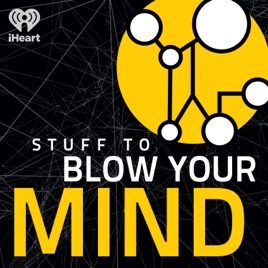
4.3
5435
2000
Stuff To Blow Your Mind
iHeartPodcasts
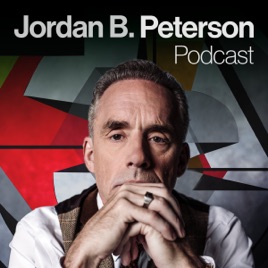
4.7
30373
426
The Jordan B. Peterson Podcast
Dr. Jordan B. Peterson

4.3
5067
150
Science Friday
Science Friday and WNYC Studios
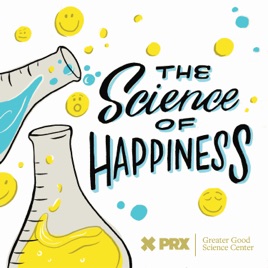
4.5
1733
213
The Science of Happiness
PRX and Greater Good Science Center

4.9
107
84
Materialism: A Materials Science Podcast
Taylor Sparks and Andrew Falkowski

4.7
94
50
Casual Inference
Lucy D'Agostino McGowan and Ellie Murray
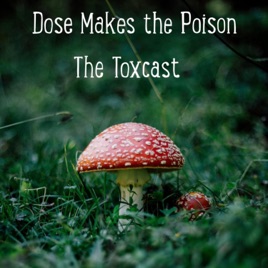
4.8
67
22
Dose Makes The Poison: The Toxcast
Kevin G. Shanks

4.8
8217
597
Sasquatch Chronicles
Sasquatch Chronicles - Bigfoot Encounters
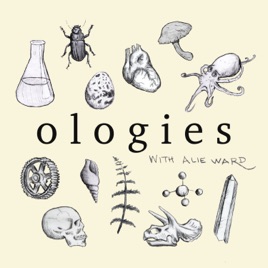
4.9
21221
379
Ologies with Alie Ward
Alie Ward
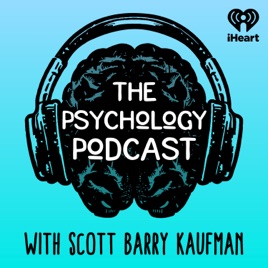
4.4
1648
409
The Psychology Podcast
iHeartPodcasts



